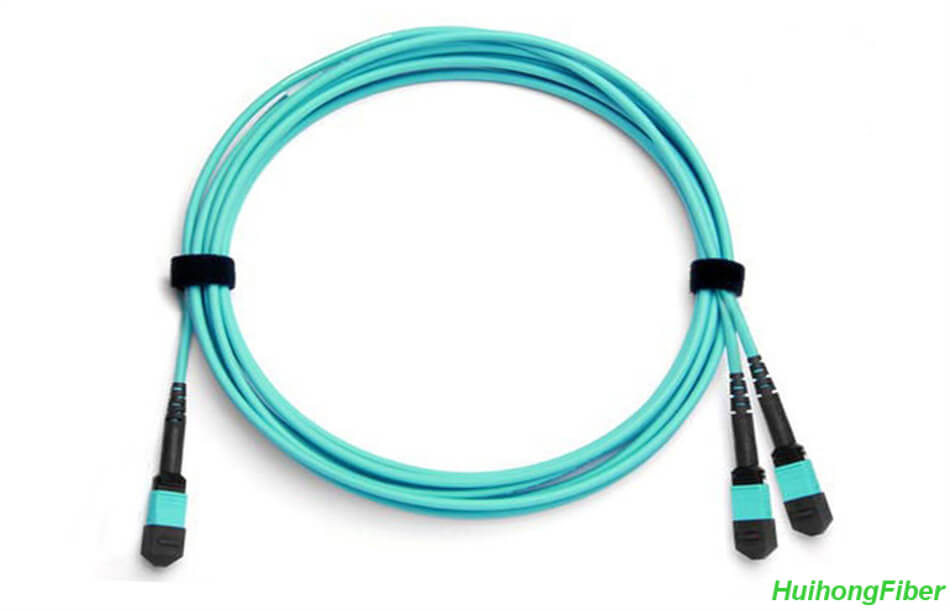This cable enables the transfer of two 12-fiber optical signals onto a 24-fiber cable for transmission, thanks to its one end terminated with a 24-fiber MTP connector and the other end terminated with two 12-fiber MTP connectors. This makes it useful in multimode cabling systems, where it can transmit the optical signals of two 40G-SR4 QSFP+ modules over a single 24-fiber MTP cable.
Unlike MTP harness cables, which have MTP connectors on only one end, MTP conversion cables like this one have MTP connectors on both ends, providing more possibilities for existing 24-fiber cabling systems. They are designed to be more flexible than traditional multi-fiber cabling systems based on MTP products.

| Parameters | Value | Parameters | Value |
|---|---|---|---|
| Fiber Connector | MPO/MTP | Gender | Female |
| Fiber Mode | OM4 50/125μm | Wavelength | 850/1300nm |
| Glass Fiber | Multimode | Polish Type | UPC to UPC |
| Insertion Loss | 0.35dB Typ. | Return Loss | ≥20dB |
| Attenuation at 850nm | ≤2.3dB/km | Attenuation at 1300nm | ≤0.6dB/km |
| Cable Jacket | Plenum (OFNP)/LSZH | Minimum Bend Radius | 7.5mm |
| Jacket OD | 3.0mm | Breakout Length | 0.5m |
| Installation Tensile Load | 66N | Tensile Strength (Long/Short Term) | 80/240N |
| Operating Temperature | -10 to 70°C (14 to 158℉) | Storage Temperature | -40 to 85°C (-40 to 185℉) |
The 40/100G MTP conversion cables also eliminate the need for separate conversion cassettes, which can be expensive and cause loss of fibers. Using MTP conversion cables is therefore a more cost-effective and lower-loss option.
MTP connectors are a proven and trusted format that offers state-of-the-art multi-fiber and mechanical performance, with a typical insertion loss of 0.35dB. They deliver stable signals and enable flexible system design, thanks to features like the integrated Push-Pull Sleeve, which makes mating and un-mating easier even in dense applications, and the Protective Dust Cover, which reduces the risk of connector damage and extends the cable’s useful life. The quality optical fiber used in MTP conversion cables also has excellent bending and compression resistance, making it an ideal choice for high-density cabling in various environments. Using MTP conversion cables can minimize waste, optimize cable management, speed deployment, and improve flexibility and manageability, all while lowering installation costs.
